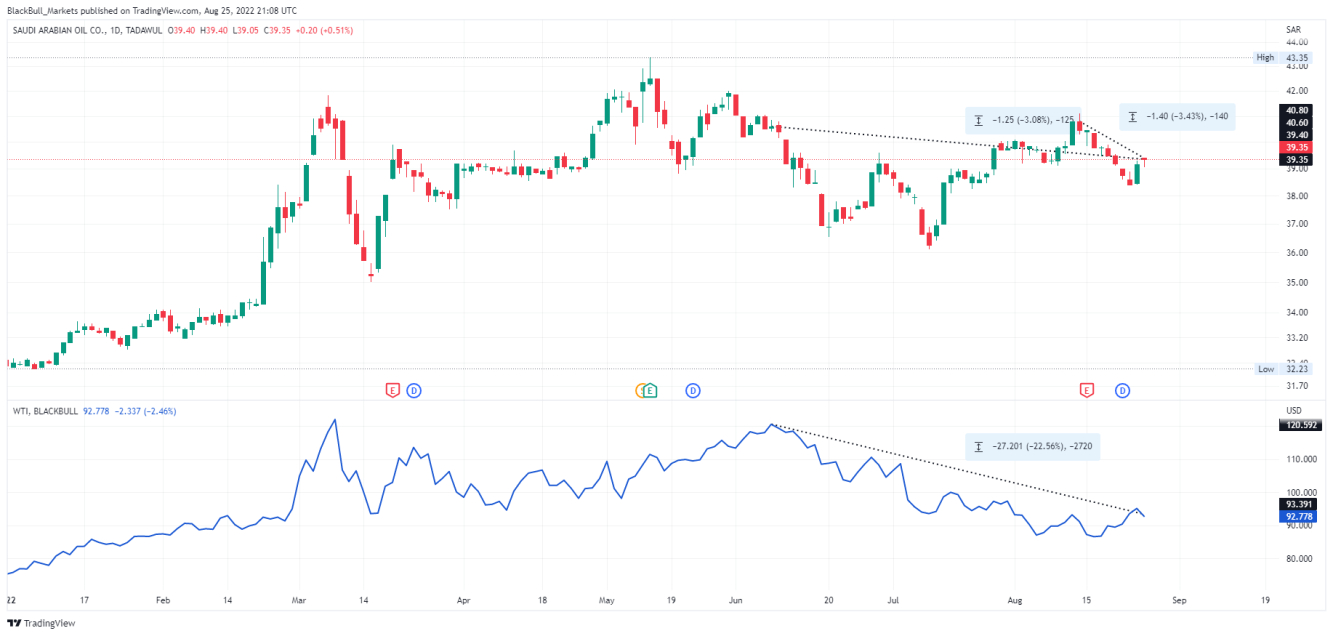Is Saudi Aramco (TADAWUL:2222) looking to diversify its income sources after soaring oil prices helped it deliver record-high earnings in the second quarter?
Saudi Aramco saw its net income nearly double during the three-month period to 173.80 billion Saudi riyals ($46.28 billion) from 90.90 billion riyals.
President and CEO Amin Nasser said increasing demand for the company's products made the record-high earnings possible, adding that it also benefitted from favorable market conditions stemming from strong global crude oil prices.
But as oil prices begin to cool down, Saudi Aramco has set its sights on improving its technology and generating products from different sources.
Reaching New Heights
Saudi Aramco was listed on the Saudi Stock Exchange on Dec. 11, 2019. It became the most valuable listed company, with a market capitalization of $1.9 trillion upon its debut. Apple eventually dethroned it (NASDAQ:AAPL), but thanks to oil price hikes, it reclaimed the title in May with a market value of $2.43 trillion against Apple's $2.37 trillion.
Every movement in the company's price relies heavily on oil and energy prices. Saudi Aramco saw major growth when oil prices reached multi-year highs at the beginning of the second half. When war broke out between Russia and Ukraine, oil prices had another boost. Nowadays, industry observers aren't as bullish.
Last week, Reuters reported that oil prices tumbled amid fears that demand could weaken due to an impending economic slowdown.

Given this trend in oil prices, the company had been in the red, dropping nearly 4% to $39.00 since Aug. 14. Its management does not seem fazed, however, with Nasser saying,
"We expect oil demand to continue to grow for the rest of the decade, despite downward economic pressures on short-term global forecasts."
New Goals
As part of Saudi Aramco's second quarter results, Nasser said the company is working to increase production from multiple energy sources, including oil and gas, renewables, and blue hydrogen.
"We are progressing the largest capital program in our history, and our approach is to invest in the reliable energy and petrochemicals that the world needs while developing lower-carbon solutions that can contribute to the broader energy transition,"
Khalid Al-Falih, Saudi Arabia's Minister of Energy Industry and Mineral Resources and chairman of Saudi Aramco's board, said the company will be on the frontline of the country's Vision 2030.
He said,
"The company will become a much more technology and knowledge-driven organization and seek to move, change, and expand into areas that will make it more agile and responsive and lead the industry into a better energy future."
